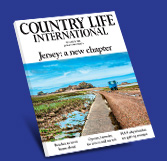When you are relocating to Jersey or Guernsey the last thing you want to think about is something going wrong. Losing precious belongings en route, having an accident or not being covered by your existing policy could be disastrous.
Jo Stoddart talks to the experts to make sure your new life in the Channel Islands is fully covered. She is joined by experts from Rossborough Insurance – Mark Vautier who is Head of Private Clients for Jersey, Guernsey and the Isle of Man and Laura Boyd, Manager of the Private Clients Department in Guernsey.
Mark and Laura guide us through all the issues that you could face when you move to Jersey or Guernsey. They highlight the differences between the UK and the islands, what you need to consider before you reach your new home and what you need to do once you are there.
If you are moving to Jersey or Guernsey Jo and her team can guide you through the process to make it seamless and stress free whether you are moving on your own or with your family.
TRANSCRIPT
Jo Stoddart: Wherever you’re living, adequate insurance is an important thing to get right. Today we’ve invited experts from the Rossborough Group to join us at Guernsey’s Old Government House Hotel.
They will answer some key questions about what people should be thinking about in terms of insurance when moving to Guernsey or Jersey.
Many new residents will have an existing broker in the UK or elsewhere. Tell me about the benefits of using a Channel Islands broker.
Mark Vautier: Rossborough have been looking after the Channel Islands for 80 years, so it’s fair to say we know what to do when it comes to ensuring the quirks of Island life.
The great thing about Channel Island Brokers is we understand the local market and know about the things that are most important to local people when it comes to taking out their insurance and at Rossborough we’ve worked with our insurers to ensure they understand this, too, which leads to flexible underwriting and preferential rates for our clients.
Of course we can offer a personal service by visiting clients at their homes, if they wish.
Jo Stoddart: Car owners in the Channel Islands need windscreen insurance discs to be displayed in their vehicles. Can you tell me a bit more about them and what the law states with regards to using them?
Laura Boyd: In the UK, all vehicles are registered with the Major Insurance Database, where insurers will register the fact that the vehicle is insured. The Channel Islands don’t use this database, so all Channel Island registered vehicles must display the windscreen insurance disc as proof that the vehicle is insured. There will be a fine applicable if a valid disc is not displayed by the owner.
We also supply the windscreen disc holders to help ensure the discs are displayed correctly.
Jo Stoddart: When an individual is relocating to the Channel Islands and transporting all of their possessions via transit. How do they make sure they’re protected if something gets damaged during transfer?
Mark Vautier: Well, it’s important that they contact their broker before anything is transported. The broker should be able to arrange seamless cover for the transit. This is definitely something that we could help with, whether through the household policy or specific transit insurance. This is often a busy time for new residents, so we’ll try to simplify the process whilst ensuring adequate cover is provided door to door.
Jo Stoddart: Are home insurance policies cheaper in the Channel Islands due to lower crime and accident rates?
Laura Boyd: The Channel Islands do have lower crime rates and speed limits than the UK. As a result, losses are reduced and this is reflected in the premiums. With our experience in the Islands, we can assure that you have access to the best rates from our insurers and we work with insurers that fully understand the low risks involved. It’s a lovely benefit to Island life.
Jo Stoddart: What do Channel Islands’ residents need to consider when purchasing travel insurance?
Mark Vautier: We need to be careful about not buying off the shelf and not consulting a broker, because not all policies are the same. For example, the Channel Islands are not part of the UK, some wordings will not cover the cost of traveling back to the Islands if plans are disrupted. In these cases, the cover often ceases in the UK, which can leave people paying out extra to get themselves and their families home safely.
As a local broker, we’ve recognized this problem and always ensure that the insurers we use cater for Channel Island residents.
Laura Boyd: Also, in Guernsey we do not have the reciprocal house agreement with the UK, so it’s important that Guernsey residents have medical cover under their travel insurance when visiting the UK.
Jo Stoddart: Do you provide any other services, such as content insurance valuations for high net worth clients moving to the Channel Islands?
Laura Boyd: Yes, we do. We work with the client to understand which services are important to them or that we think that they would benefit from and look to find an insurer that would provide these. For example, contents, buildings, or even jewelry valuations.
Jo Stoddart: Can Rossborough assist with finding appropriate security services for new residents to the Channel Islands?
Mark Vautier: Well, our local knowledge means that we’ve built up a database of local services and can help the clients find a company to suit them. This could include intruder alarms, fire protection, or finding a suitable safe. Our insurers will also provide advice on the type of protection that would be suitable, such as the cash rating of a safe.
Jo Stoddart: Finally, thank you for running through these points with me. I’m sure our clients will find this really useful.




